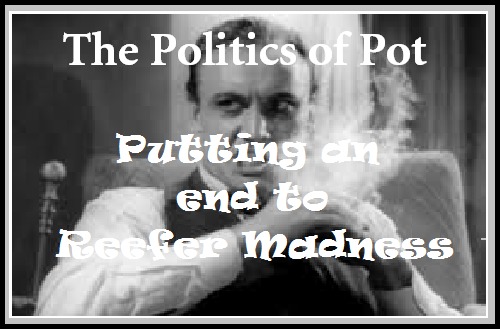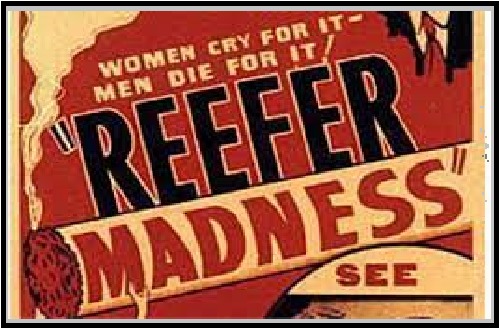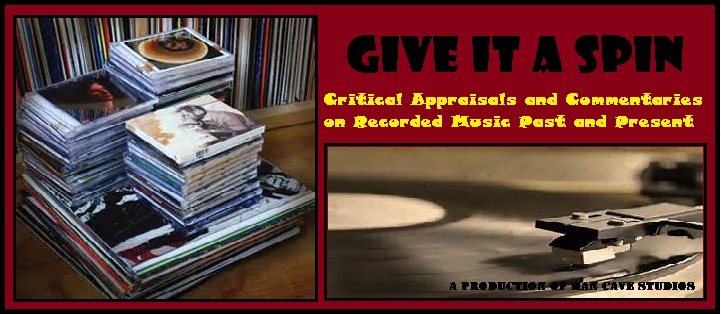How Will the Upcoming Election Impact Marijuana Legislation?

Have you ever heard of Samuel R. Caldwell or Moses Baca? Well, don't worry about it. You're probably not alone.
According to federal files, Caldwell, 58, was the first person to have been convicted of selling marijuana in the United

How proud his family must have been.
Baca, 26, his customer, was arrested for possession. The FBI and Denver police raided the Lexington Hotel and nabbed them both weed-handed, putting them in the history books. I wonder who the first snitch was?
By the way, keep in mind that Denver is in the state of Colorado.
At the time, Caldwell was an unemployed laborer, but not for long. On top of his $1,000.00 fine, he was sentenced to four years of hard labor. At least he was experienced. He was released in 1940 and died in 1941. Apparently, If it weren't for bad luck, he'd have had no luck at all. He must have been humiliated to death.
The same year Caldwell and Baca got busted, lovers of exploitation films were introduced to the evils of weed, with the release of "Reefer Madness." Originally produced by a church group for parents to use as a warning to children, it was purchased by a producer, who released it to the general public.
Over the years, it's become universally accepted as a good laugh and, perhaps, the worst movie ever made. It was

They're doing it with the "Rocky Horror Picture Show."
Does anybody else find it ironic that the first recorded bust happened in Denver, Colorado?
It's the capital of one of the first states to make marijuana legal for recreational purposes?
Should Caldwell and Baca be posthumously pardoned?
Why not?
Colorado Amendment 64, which passed by a vote of 1,383,139 to 1,116, 894 on November 6, 2012, made regulating marijuana similar to that of alcohol. The commercial sale of marijuana to the general public began January 1, 2014.
In 2015, the state reported tax collection figures for 2014, the first year of legal commercial sales, had reached a total of $44 million from recreational use and another $32 million from taxes collected from fees from the industry.
I find this very worthy of review.
I live in Illinois, which hasn't passed a state budget in nearly two years. That's when republican Bruce Rauner was elected governor. Ever since, it's been a stalemate between him and the democratic majority in the state legislature, led by House Speaker Michael Madigan. Neither side appears ready to blink, despite an ever-increasing number of residents and businesses relocating to other states, including nearby Wisconsin.
However, Illinois recently became the 17th state, and third largest, to decriminalize possession of small amounts of

There was no hoopla. The decision appeared to come out of nowhere and there's been virtually no reaction whatsoever. I guess my fellow residents are more concerned with a myriad of other issues. I can't believe it.
In the meantime, state legislators have passed a couple of stop-gap measures to allow the funding of state operations and schools. However, many other state funded or assisted entities have been forced to drastically cutback, plead for donations, or close their doors, most notably, a large number of mental health facilities.
The potential increase in state funding, as the result of legalizing and regulating the sale of marijuana for recreational purposes, could remove the state from life support, assuming the elected officials could arrive at some kind of compromise. However, no amount of money can ever guarantee that will happen.
That brings me to what we can look forward to, regarding this issue, in the upcoming presidential election.
Will marijuana become the country's next so-called "sin tax," will it remain up to the individual states, or will it return to being public enemy #1?
Well, let's look at Donald Trump first, since he's the maverick candidate.
Then, we'll look at Hillary Clinton, who may be considered the "old guard."
According to "Leafly," which refers to itself as the world's largest cannabis information resource, Trump has been "hemming and hawing" about the topic over the entire course of his campaign. He's quoted as saying that legalization is both "good and bad."
Nonetheless, they added that he went on record in favor of legalization in 1990, when he said he favored the legalization of all drugs, not just marijuana. He said he thinks legalization is the only way to win the war on drugs. It would deny the drug czars a profit.
However, that position can't sit well with Mike Pence, his choice for a running mate, and former Indiana governor.

"Leafly" states that Pence is "clearly anti-cannabis in all its forms." On the other hand, they added that Trump doesn't care about Pence's opinion on anything. Imagine that?
Perhaps, even more interesting, is Trump's potential choice for attorney general, New Jersey Governor Chris Christie. He's also been notoriously anti-cannabis. He could potentially be in charge of enforcing the laws of the country.
Therefore, "Leafly" believes the best way to determine Trump's direction is by following public opinion. From my observations, public opinion has begun to lean so far toward legalization, and recreational use, that it's about to tip over.
The latest polls suggest that more than half of Americans want to see pot at least legalized, starting with medicinal use, and, eventually, for recreational use. Five more states are poised to approve the recreational use of marijuana in the November 8, election. The winds of change are shifting.
Okay, let's now consider Clinton.
Russ Belville, of "High Times" magazine, which is, perhaps, the longest running and highly respected periodical on the subject, finds himself in a virtual dilemma in regard to Clinton's position.
"I know it sucks and I don't want to do it either, but every scenario I can imagine for the future of marijuana legalization turns out better under a President Hillary Clinton than a President Donald Trump."
He cites the aforementioned leanings of Pence and Christie. However, he goes further to point out the various appointments that lay ahead, such as those for the Supreme Court.
Nonetheless, he also points out that no state legislature has legalized recreational use on its own accord. It's been the voters calling for it to be placed on the ballot.
Clinton has stated that she wants to reclassify cannabis to the same level as cocaine and find "alternatives to

They are considered to have no acceptable medicinal use and a high potential for abuse. Cocaine, on the other hand, is a Schedule II drug, which is considered a controlled substance. There are acceptable medicinal uses, but they also have a high potential for abuse.
However, she doesn't want to see medicinal marijuana expand at the state-level. She wants the feds to research the medical benefits to determine its use. I'm certain there'd be no political -- or big-business -- influence associated with those potential studies.
But, how many studies do we need?
There have already been 60 peer-reviewed studies conducted by qualified research scientists in regard to its medicinal value. The majority, 68.3 percent, are considered "pro," while 8.3 percent "con," and 23.3 percent "not clearly pro or con."
The studies that still question the effects of its medicinal use are considered in the minority, clung to mostly by those who stand firmly against legally growing, selling, using, or even thinking about marijuana.
So, if you were thinking about using this issue to help you decide which candidate you'll cast your vote for president, your guess is apparently as good as mine -- or anybody else's for that matter.
Good luck.

Articles from Randy Keho
View blog
As a youngster, books satisfied my interest in history -- military and ancestoral. · As a youth, the ...

My reading habits spiked during the mid-to-late 1980s. I had the time. · I'd embarked on a career in ...

I've always loved Rockford, Illinois. It's my hometown. · It's certainly had its up and downs, but ...
You may be interested in these jobs
-
Nursing Assistant- Inpatient Surgical Care
1 week ago
Department Of Veterans Affairs Minneapolis, United States Part timeSummary · The Minneapolis VA Health Care System (VAHCS) is a teaching hospital providing a full range of patient care services with state-of-the-art technology, as well as education and research. Comprehensive health care is provided through primary care, tertiary care and long-t ...
-

Senior Consultant
5 days ago
Kyyba Portland, United StatesJob Description : · At least 10 years of experience in SAP middleware integration area. · Experience in leading upgrade and migration projects with a focus on CPI. · Experience working in both PI/PO and CPI interfaces developed in the Neo environment. · Experience in migratin ...
-
Nurse Manager- RN
13 hours ago
Sycamore Springs Lafayette, United StatesOverview: · Sycamore Springs is a 48-bed behavioral hospital located in Lafayette IN. The hospital offers inpatient and outpatient mental health and addiction treatment to adults, adolescents and their families. At Sycamore Springs we are dedicated to Changing Peoples Lives · . ...


Comments
Randy Keho
7 years ago #1